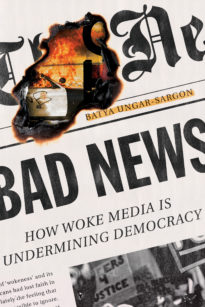Why does Batya Ungar-Sargon continue to provoke such strong reactions across the political spectrum? A bold statement can be made that her work challenges not just ideological boundaries but also societal norms in ways few contemporary writers dare to attempt.
Batya Ungar-Sargon, a prominent journalist and author, has carved out a unique niche for herself in today's polarized media landscape. Her writings often delve into contentious issues, ranging from anti-Semitism to celebrity culture, all while maintaining an unflinching commitment to truth and intellectual rigor. As a columnist for various platforms including spiked and The Free Press, she consistently delivers thought-provoking content that resonates with readers seeking honest discourse. Yet, it is her ability to navigate complex topics without succumbing to partisan biases that truly sets her apart. For instance, her critique of elite institutions like Harvard reveals how these establishments perpetuate systemic inequalities under the guise of meritocracy. This perspective aligns closely with sentiments expressed by figures such as Donald Trump, who similarly criticized Ivy League schools during his presidency.
| Personal Information | Details |
|---|---|
| Name | Batya Ungar-Sargon |
| Date of Birth | Not publicly disclosed |
| Spouse | Jon Polin |
| Profession | Journalist, Author |
| Notable Works | Second Class, Bad Faith |
| Publications | spiked, The Free Press |
| Website | The Free Press |
In examining the broader implications of her work, one cannot overlook her commentary on relationships and marriage. In discussing Dolly Parton's husband Carl Dean, Ungar-Sargon highlights the virtues of privacy within long-term partnerships. She argues persuasively that modern couples could benefit from emulating this approach rather than succumbing to the pressures of public exposure. Such insights underscore her versatility as a writer capable of addressing both highbrow intellectual debates and relatable human experiences.
Her examination of Michelle Obama's podcast further illustrates this point. While acknowledging its appeal to affluent audiences, Ungar-Sargon critiques the disparity between the former First Lady's financial success and the realities faced by everyday Americans. By juxtaposing Marian Shields Robinson's modest background against Barack Obama's substantial wealth, she sheds light on socioeconomic divides often obscured by glossy media portrayals.
Turning attention to law enforcement, particularly the Hammond Police Department, provides another lens through which to view Ungar-Sargon's analytical prowess. Her coverage of the 'Blue Sentinels' initiative showcases her dedication to uncovering stories beneath surface-level narratives. Through meticulous reporting, she exposes nuances surrounding police practices and community relations, contributing valuable perspectives to ongoing discussions about criminal justice reform.
Despite facing criticism from certain quarters, notably redditors skeptical of her perceived elitism, Ungar-Sargon remains steadfast in her convictions. Critics may question whether her earnings stem solely from senatorial salaries or speculative investments by her spouse, yet such conjectures fail to detract from the substance of her arguments. Instead, they reinforce her status as a formidable voice challenging conventional wisdom.
Ultimately, Batya Ungar-Sargon embodies the spirit of independent journalism at its finest. Whether dissecting academia's shortcomings, celebrating private marital bliss, critiquing celebrity lifestyles, or advocating transparent policing, her contributions enrich public discourse. Readers drawn to incisive analysis untainted by bias find solace in her unwavering pursuit of truth—a quality increasingly rare in today's information age.
For those unfamiliar with her oeuvre, exploring works such as Second Class offers a glimpse into her nuanced understanding of identity politics. Similarly, delving into pieces published via Substack under Bari Weiss' banner reveals further dimensions of her craft. Each article serves as testament to her enduring relevance amidst shifting societal paradigms.



